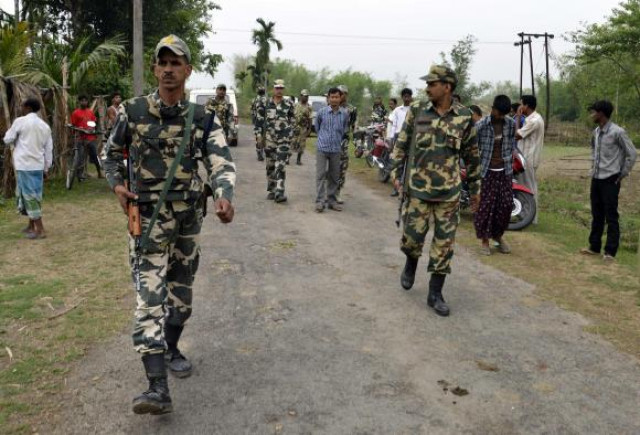Uri attack: New Delhi fails to substantiate case against Islamabad
The two held suspects will be handed back to Islamabad

A file photo of Indian security officers in Assam. PHOTO:REUTERS/FILE
The decision also seriously undercuts New Delhi’s claims of Pakistan’s involvement in the attack.
India’s Ministry of External Affairs had earlier claimed to have “proof of the cross-border origins of Uri attacks”, on September 18 last year, which left at least 18 soldiers dead.
Days after the attack, the Indian foreign secretary had called Pakistani High Commissioner Abdul Basit to inform him about the arrest of two guides who allegedly helped four gunmen to infiltrate the country and later attack the Indian Army’s brigade headquarters in Uri.
New Delhi claimed that its forces carried out surgical strikes inside Pakistan against alleged ‘terror launch-pads’ soon after the Uri attack. Islamabad rejected the claim which was also contested by a number of independent experts.
“Faisal Hussain Awan and Ahsan Khursheed will be sent back as the charges framed against them could not be substantiated,” India’s newswire service ANI reported on Sunday.
Apprehended just three days after the attack, the duo will be handed over to Pakistan as part of a ‘goodwill agreement’ between Islamabad and New Delhi wherein Indian soldier Chandu Babulal Chohan, who deserted his post at the Line of Control (LoC) due to personal grievances against his commanders, was handed over to Indian military officials at the Wagah border.
“Awan and Khursheed had, during their interrogation, disclosed that they were tasked by Jaish-e-Muhammad (JeM) commanders to facilitate the infiltration of a group of four JeM cadres who carried out the Uri Army camp attack,” ANI quoted an NIA statement of September 27, 2016 as saying.
Kashmir has been divided between India and Pakistan since their independence from Britain in 1947. Both claim the territory in full and have fought two wars over the mountainous region. An armed rebellion that started in the region in 1989 has left tens of thousands, mostly civilians, dead.
Tensions in Indian-administered Kashmir were already high before the army base attack over the July 8, 2016 death of popular militant leader Burhan Wani, with nearly 90 people killed in clashes with security forces since then.
Published in The Express Tribune, February 27th, 2017.



















COMMENTS
Comments are moderated and generally will be posted if they are on-topic and not abusive.
For more information, please see our Comments FAQ